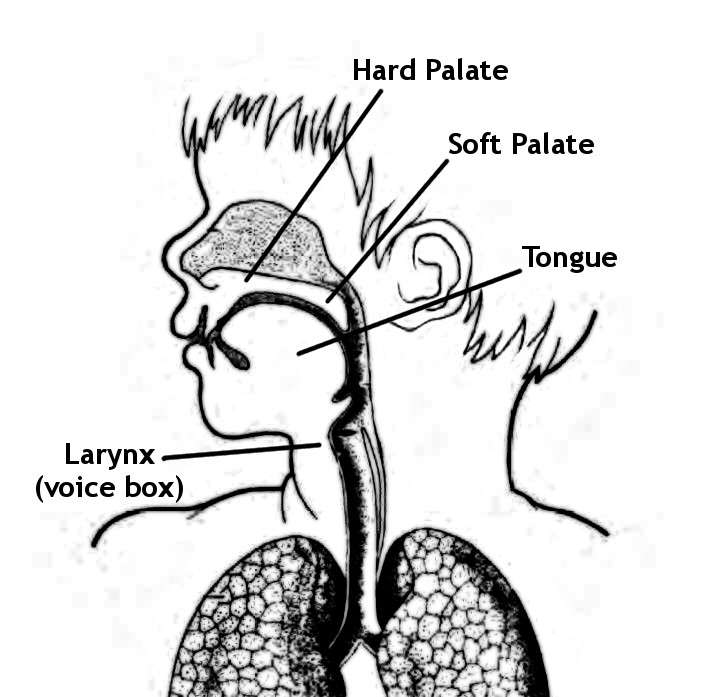Speech and language therapist
Speech and language therapy is an exciting and varied career. It offers you the chance to make a difference, a high degree of flexibility and excellent employment prospects. You’ll work with patients every day to help improve their care and their lives.
Speech and language therapy could be the right profession for you if you enjoy science, education, languages, linguistics or medicine, .
“It was humbling to be able to see the difference you can make as a speech and language therapist to someone’s life when they are at their most vulnerable.” Max Elswood, student speech and language therapist.
Read Max’s story in full.
Working life
Speech and language therapists provide life-changing treatment, support and care for children and adults who have difficulties with communication, eating, drinking and swallowing. You’ll help people who, for physical or psychological reasons, have problems speaking and communicating. Patients range from children whose speech is slow to develop, to older people whose ability to speak has been impaired by illness or injury. It also includes treatment for those who have difficulty with eating or swallowing.

What you’ll do as a speech and language therapist
Variety is one of the most exciting things about being a speech and language therapist. As well as helping patients with a variety of conditions, you’ll work in a multi-disciplinary team in different settings from hospitals to community clinics to patients’ homes.
You’ll help children with a variety of conditions including:
- mild, moderate or severe learning difficulties
- specific difficulties in producing sounds
- hearing impairment
- cleft lip and palate
- stammering
- voice disorders
- selective mutism
- developmental language disorder.
You’ll help adults with:
- communication or eating and swallowing problems following neurological impairments and degenerative conditions, including stroke, head injury, Parkinson’s disease and dementia
- voice problems
- mental health issues
- learning difficulties
- physical disabilities
- stammering
- hearing impairment
You would also work closely with teachers and other health professionals, such as doctors, nurses and psychologists. You may also supervise the work of speech and language therapy assistants.
How to become a speech and language therapist
To become a speech and language therapist you’ll need to train and study at degree or postgraduate level. A degree apprenticeship has also been approved.
Entry requirements
To get on to an speech and language therapy degree course you usually need:
- two or three A levels, along with five GCSEs (grades A-C), including English language, maths and science
or alternative qualifications, including
- BTEC, HND or HNC which includes science
- relevant NVQ
- science-based access course
- equivalent Scottish or Irish qualifications
If you already hold a relevant first degree, you can apply for an accelerated postgraduate programme in speech and language therapy. These courses usually last two years.
Each institution sets its own entry requirements, so it’s important to check carefully.
Annual payments
If you’re eligible, you’ll receive at least £5,000 a year to help fund your studies while at university. Your personal circumstances may mean you could receive more. And the good news? You’ll never have to pay it back. Find out more.
There are a growing number of degree apprenticeships. Apprenticeships give you the chance to earn a living while gaining your qualification. Your employer and the government will pay the tuition fees, so apprenticeships aren’t eligible for student grants.
Must-have skills
Don’t forget – academic qualifications aren’t everything. You’ll need to be able to motivate and reassure people of all ages using your excellent communication skills. You’ll also need to be able problem solve and show real leadership and organisational skills. You’ll also need to be happy working alone and as part of a team.
Training and career development
Once you’ve qualified, you’ll have annual Continuing Professional Development (CPD) check-ins, where we’ll discuss your career aspirations and plan how we can help you to achieve them, so you’re always moving forward. You may choose to specialise in a particular area of practice such as cleft and lip palate, people with swallowing difficulties or learning disability. Other options include teaching or research.
You could also do further training and an advanced clinical practitioner or move into management. As head of a local speech and language therapy service you would be responsible for a team of staff and for managing a budget.
Pay and conditions
Your standard working week will be around 37.5 hours. As an speech and language therapist, you’ll be paid on the Agenda for Change (AFC) pay system, typically starting on band 5.
You’ll also have access to our generous pension scheme and health service discounts, as well as 27 days of annual leave plus bank holidays.
The recommended treatment for aphasia is usually speech and language therapy. Sometimes aphasia improves on its own without treatment.
This treatment is carried out by a speech and language therapist (SLT). If you were admitted to hospital, there should be a speech and language therapy team there.
When you leave hospital, an SLT should be available through a community rehabilitation team or, after a stroke, an early supported discharge team.
If you weren’t admitted to hospital or didn’t see an SLT while you were there, you can ask your GP to refer you.
In some areas, you can contact your local speech and language therapy department directly.
Most people with aphasia need many hours of speech and language therapy to recover to their full potential.
How speech and language therapy can help
For people with aphasia, speech and language therapy aims to:
- help restore as much of your speech and language as possible (reduce impairment)
- help you communicate to the best of your ability (increase activity and participation)
- find alternative ways of communicating (use compensatory strategies or aids)
- provide information to patients and their relatives about aphasia
How the therapy is carried out will depend on your circumstances.
An intensive course of speech and language therapy may be recommended for some people. This involves a number of sessions given in a shorter period of time.
But speech and language therapy can be exhausting, and an intensive course of treatment won’t be suitable for everyone.
For some people, shorter and less intensive sessions may be recommended.
Therapy may be individual sessions, in groups, or using technology such as computer programmes or apps.
For many people with aphasia caused by stroke, the most rapid changes are early on in the weeks and months after their stroke.
But improvements can continue to be seen many years, and even decades, later.
Assessment before therapy
The treatment you receive will depend on your general health and the difficulties you have with your speech, language or social skills.
An assessment will be carried out before therapy begins so the therapist can identify which aspects of language you have the most difficulty with.
A therapist will talk to you and your family to try to determine whether your problems are related to understanding language or if you have problems expressing yourself.
The assessment will then focus on the areas that need to be targeted in therapy.
Other health problems that may impact your ability to communicate, such as hearing or sight problems, will also be taken into account.
Speech and language therapy techniques
The specific techniques used and the aims of the treatment will depend on each person’s circumstances.
If you have difficulty understanding words, your SLT may ask you to carry out tasks such as matching words to pictures or sorting words by their meaning.
The aim of these tasks is to improve your ability to remember meanings and link them with other words.
If you have difficulty expressing yourself, your SLT may ask you to practise naming pictures or judge whether certain words rhyme.
They may also ask you to repeat words that they say, with prompting if necessary.
If you’re able to complete tasks with single words, your therapist will work on your ability to construct sentences.
Some techniques may involve working with a computer. Other methods may include group therapy with other people with aphasia, or working with family members.
This will allow you to practise conversational skills or rehearse common situations, such as making a telephone call.
An increasing number of computer-based programmes and apps are available to help people with aphasia improve their language abilities. But it’s important to start using these with the supervision of an SLT.
Alternative methods of communication
An important part of speech therapy is finding different ways for you to communicate.
Your therapist will help you develop alternatives to talking, such as using gestures, writing, drawing or communication charts.
Communication charts are large grids containing letters, words or pictures.
They allow someone with aphasia to communicate by pointing at the word or letter to indicate what they want to say.
For some people, specially designed electronic devices, such as voice output communication aids (VOCAs), may be useful. VOCAs use a computer-generated voice to play messages aloud.
This can help if you have difficulty speaking but are able to write or type.
There are also apps available on smartphones and computer tablets that can do this.
If a communication device is thought to be beneficial, funding for the purchase of an individual device can be discussed with an SLT.
Communicating with a person with aphasia
If you live with or care for a person with aphasia, you may be unsure about the best way to communicate with them.
You may find the following advice helpful:
- After speaking, allow the person plenty of time to respond. If a person with aphasia feels rushed or pressured to speak, they may become anxious, which can affect their ability to communicate.
- Use short, uncomplicated sentences, and don’t change the topic of conversation too quickly.
- Avoid asking open-ended questions. Closed questions that have a yes or no answer can be better.
- Avoid finishing a person’s sentences or correcting any errors in their language. This may cause resentment and frustration for the person with aphasia.
- Keep distractions to a minimum, such as background radio or TV noise.
- Use paper and a pen to write down key words, or draw diagrams or pictures, to help reinforce your message and support their understanding.
- If you don’t understand something a person with aphasia is trying to communicate, don’t pretend you understand. The person may find this patronising and upsetting.
- Use visual references, such as pointing, gesturing and objects, to support their understanding.
- If they’re having difficulty finding the right word, prompt them – ask them to describe the word, think of a similar word, try to visualise it, think of the sound the word starts with, try to write the word, use gestures, or point to an object.
Ongoing research
Research is currently being carried out to study whether other treatments can benefit people with aphasia.
These include:
- behavioural therapies or practise – for example, apps to help people gain large amounts of repetitive practise on certain language tasks
- electrical brain stimulation techniques – for example, transcranial direct current stimulation (tDCS), where a small electrical current is passed through the scalp into the brain to help boost performance on language tasks
- medicines – for example, to help the brain recover or replace damaged neurotransmitters (chemicals in the brain that allow the nervous system to communicate with the rest of the body)
Although some studies have suggested these treatments may benefit some people with aphasia, further research is necessary.
Advice for carers
Helping to care for a loved one, relative or friend with aphasia can be a daunting and challenging prospect, particularly during the first few months of symptoms starting.
People with aphasia often have complex needs, and their condition can make them prone to mood swings and challenging behaviour.
If you’re caring for someone with aphasia, you may find the social care and support guide useful.
This page in the dementia guide about communicating with someone with dementia has some information and advice that may help when communicating with someone with aphasia.
The Stroke Association provides help and support for people affected by aphasia.
The Aphasia Alliance is a group of organisations that support people with aphasia and their families.
Page last reviewed: 23 March 2021
Next review due: 23 March 2024



